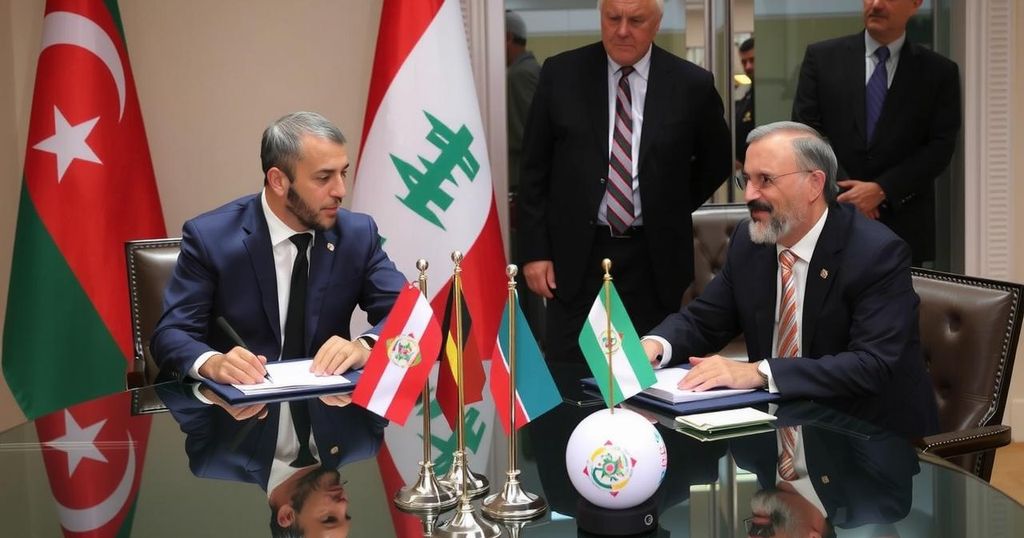Libyan Minister Walid Ellafi met Syria’s new leader, Ahmed Al-Sharaa, to discuss energy cooperation, migration, and diplomatic relations. They expressed mutual support for Syria’s transitional phase and emphasized the need for continued coordination on security matters. The meeting reflects ongoing efforts to re-establish ties and address pressing regional issues, including the plight of Syrian migrants in Libya.
A senior official from Libya’s internationally recognized government, Walid Ellafi, recently convened with Syria’s newly appointed leader, Ahmed Al-Sharaa, in Damascus. Their discussions encompassed several key topics, including the enhancement of diplomatic relations, energy cooperation, and the complex issue of migration. Ellafi reiterated Libya’s unwavering support for Syria’s transitional phase and underscored the necessity for continued coordination on security and military matters. The meeting also touched upon illegal immigration, particularly concerning Syrians who have fled the ongoing conflict and sought refuge in Libya as a jumping-off point for migration to Europe.
Ellafi stated, “We expressed our full support for the Syrian authorities in the success of the important transitional phase.” Additionally, he remarked on the importance of elevating diplomatic representation between the two nations, noting the presence of the charge d’affaires during their discussions. The geopolitical landscape in Libya remains fragmented, with power divided between the Tripoli-based government and a rival eastern administration led by military figure Khalifa Haftar. Following the removal of Muammar Qaddafi in 2012, Libya had lacked diplomatic representation in Damascus until recent developments over the past few years.
On a related note, images from Syrian state news agency SANA highlighted a meeting between Sharaa and Bahrain’s strategic security chief, Sheikh Ahmed bin Abdulaziz Al-Khalifa, though details from that dialogue were not disclosed. This meeting aligns with broader diplomatic shifts, as regional powers actively seek to engage with Syria’s new authorities in the wake of leadership changes following the civil unrest that began in 2011. The discourse surrounding a peaceful transition in Syria, with support from both the United Nations and Arab League, was echoed by several diplomats.
The recent engagement between Libyan and Syrian officials signifies a pivotal moment for both nations, particularly amidst shifting geopolitical dynamics in the region. Libya remains divided politically, with competing factions struggling for control, particularly in light of the turmoil that followed the ousting of Muammar Qaddafi. Meanwhile, Syria continues to grapple with the aftermath of civil conflict, leading to significant migration challenges. The meeting between Ellafi and Sharaa brings to light the potential for renewed diplomatic relations and cooperation on pressing issues such as energy and security. As countries in the Middle East re-establish connections, it is crucial to understand the context of these discussions, especially concerning the movement of people and resources across borders, as exemplified by the plight of Syrian migrants.
In conclusion, the meeting between Libyan Minister Walid Ellafi and Syrian leader Ahmed Al-Sharaa marks a significant step towards enhancing bilateral relations, focusing on vital issues such as energy cooperation, migration, and security. The discussions highlight Libya’s support for Syria’s transitional government and underscore the importance of diplomatic engagement in the region. As both nations navigate their complex political landscapes, further collaboration could foster stability and improve conditions for displaced individuals affected by the prolonged conflict.
Original Source: www.arabnews.com







